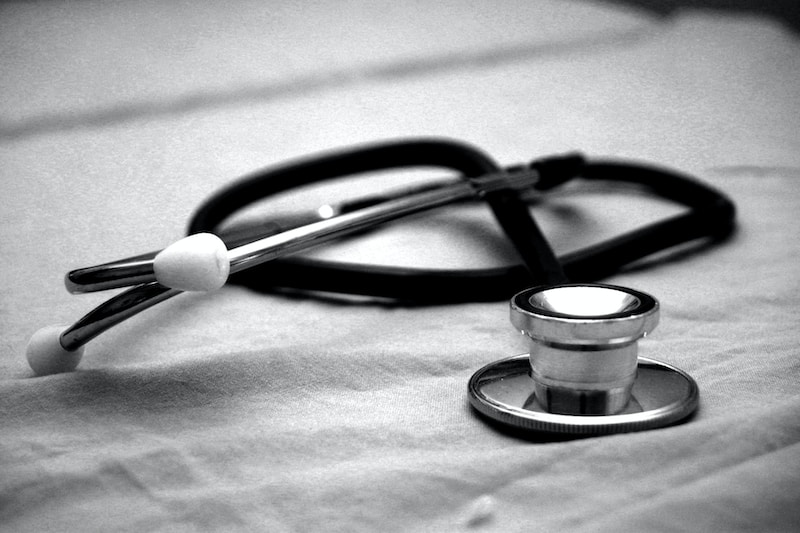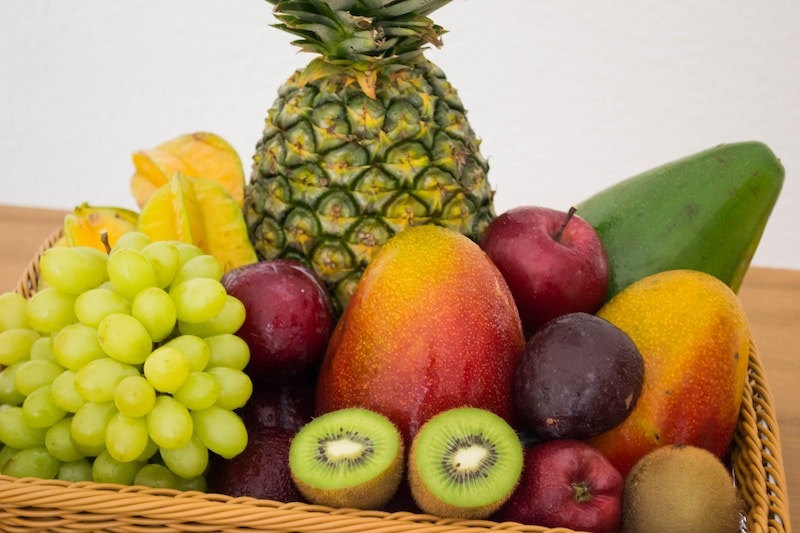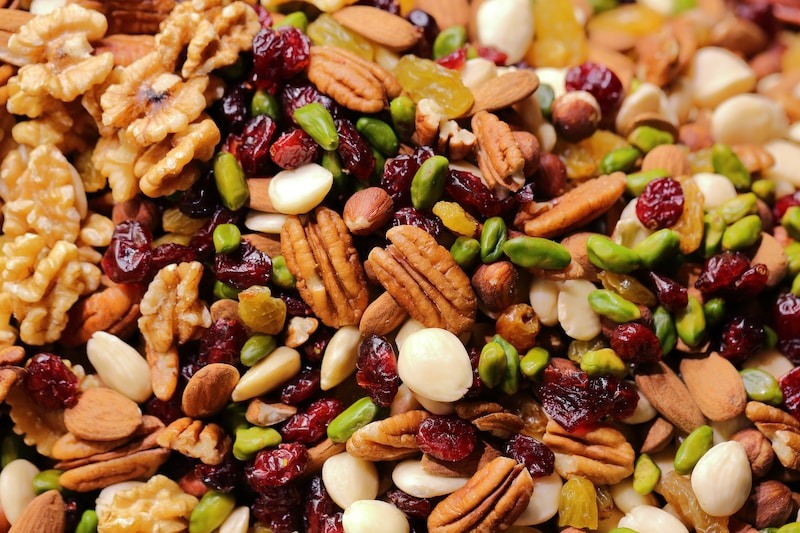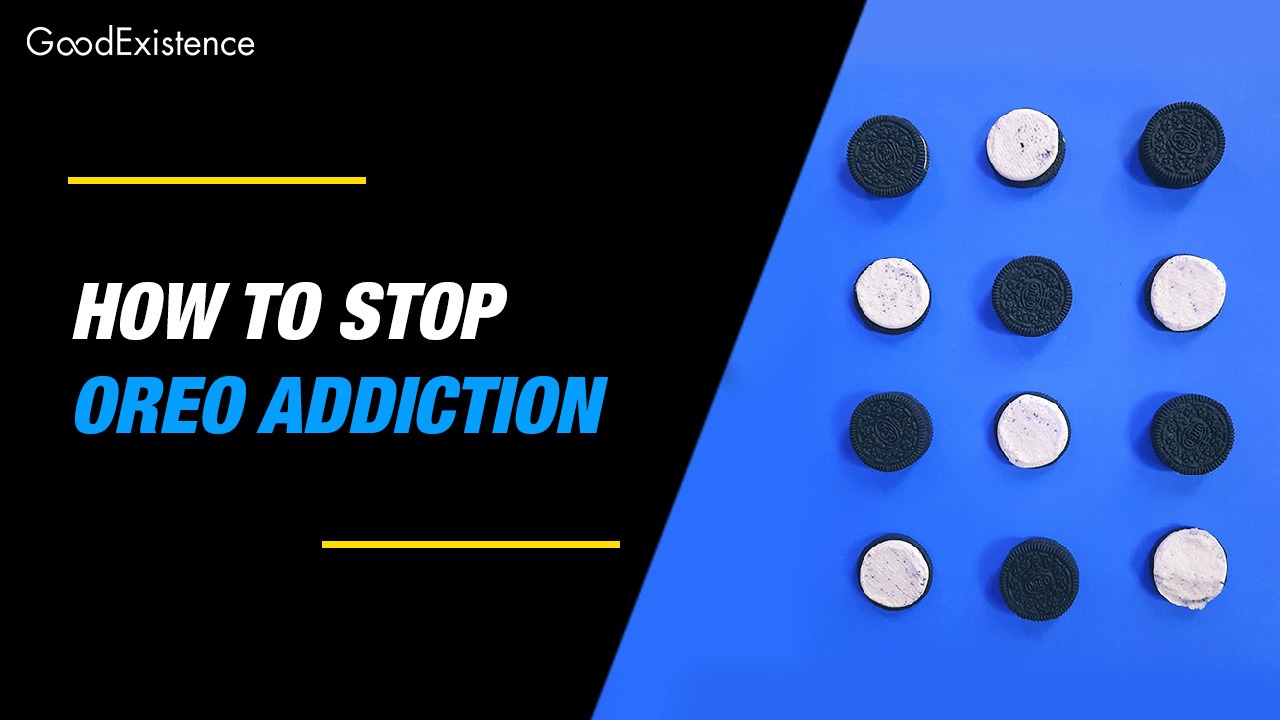Struggling with how to stop Oreo addiction? You’re not alone. This seemingly light-hearted challenge can be a significant struggle for many.
In this article, we delve into the complex issue of Oreo addiction, a condition that extends beyond simple cravings for a popular snack.
Intriguingly, research from Connecticut College has even likened the addictive potential of Oreos to substances like cocaine, highlighting their impact on the brain’s pleasure centers.
Here, we explore the allure of Oreos, from their comforting mix of chocolate and cream to the nostalgia they evoke. We’ll address when this indulgence turns into a compulsion and provide a comprehensive guide to breaking free.
This journey covers the science behind addiction, psychological influences, and, most importantly, actionable strategies for overcoming this sweet temptation.
Embark with us on a path to conquering Oreo addiction, armed with effective strategies, insights, and a deeper understanding of this unique challenge.
The Allure of Oreos

Why do we find ourselves reaching for that familiar blue package, promising sweet, creamy comfort? Understanding the allure of Oreos is key to overcoming their hold on us.
1. What Makes Oreos Addictive?
Oreos are engineered to delight our taste buds. The combination of sugar, fat, and chocolate creates a nearly irresistible blend.
Scientific studies have shown that sugar activates the same pleasure centers in the brain as certain drugs, leading to similar cravings and dependence.
The creamy filling, contrasting with the crisp chocolate cookies, provides a sensory experience that keeps us coming back for more.
2. The Psychology Behind Food Cravings
Our cravings for foods like Oreos often go beyond mere hunger. They are intricately tied to emotional and psychological factors.
Stress, boredom, and emotional distress can trigger food cravings, especially for comfort foods that offer a temporary sense of relief and pleasure.
Additionally, the nostalgic value of Oreos can evoke strong emotional responses, linking them to feelings of happiness and comfort from our past.
In this section, we’ve peeled back the layers to reveal the intricate dance of ingredients and emotions that make Oreos so addictive. But it’s not just about the cookies themselves; it’s about the psychological interplay that turns a simple snack into an emotional crutch.
Health Impacts of Excessive Oreo Consumption

Indulging in Oreos can be a delightful treat, but excessive consumption carries health implications.
It’s important to understand both the immediate and long-term effects of indulging too often in these sugary snacks.
1. Short-term Effects
In the short term, overindulging in Oreos can lead to sugar spikes, resulting in a quick surge of energy followed by a crash.
This cycle can affect mood, energy levels, and overall productivity.
Additionally, a high intake of sugars and fats can lead to digestive discomforts like bloating and indigestion.
2. Long-term Consequences
Long-term consequences are more concerning. Regular, excessive consumption of high-sugar and high-fat foods like Oreos can contribute to health issues such as obesity, type 2 diabetes, heart disease, and certain types of cancer.
It can also impact mental health, potentially leading to conditions like depression and anxiety due to the constant blood sugar fluctuations.
Understanding these health impacts is crucial. It’s not about instilling fear but about being informed so we can make healthier choices.
Next, we will explore effective strategies to overcome Oreo addiction and reduce these health risks.
Strategies to Overcome Oreo Addiction

Tackling Oreo addiction involves understanding your cravings and adopting effective strategies to manage them.
1. Identifying Triggers
Recognize situations or emotions that prompt Oreo cravings. Is it stress, boredom, or a habit formed over time? Identifying these triggers is the first step in managing them.
2. Implementing Mindful Eating
Mindful eating focuses on being present while eating, savoring each bite, and listening to your body’s hunger and fullness cues. This practice can help break the automatic hand-to-cookie-to-mouth cycle.
3. Finding Healthier Alternatives
Replace Oreos with healthier snacks that satisfy your craving without the sugar rush. Options like dark chocolate, fruit, or yogurt can offer a healthier way to indulge.
Incorporating these strategies can help you take control of your Oreo cravings and embark on a healthier eating journey.
Lifestyle Changes to Support Your Journey

Adopting certain lifestyle changes can greatly support your efforts to overcome Oreo addiction.
1. Regular Exercise
Engaging in regular physical activity can reduce food cravings and improve mood, making it easier to resist temptations.
2. Balanced Diet
Incorporating a variety of nutritious foods into your diet can reduce cravings for sugary snacks by stabilizing blood sugar levels.
3. Adequate Sleep
Getting enough sleep is crucial. Lack of sleep can increase cravings for high-sugar foods like Oreos.
These lifestyle adjustments create a solid foundation for managing cravings and promoting overall well-being.
Psychological Approaches

Incorporating psychological strategies can be effective in addressing the root causes of Oreo addiction.
1. Cognitive Behavioral Therapy (CBT)
CBT focuses on changing negative thought patterns and behaviors related to food addiction. It can help in developing healthier eating habits and coping mechanisms.
2. Mindfulness
This practice helps in managing stress and emotional triggers that may lead to overeating. Mindfulness encourages a greater awareness of eating habits and the emotions associated with them.
By adopting mindfulness individuals can gain deeper insights into their eating behaviors and develop effective strategies to combat Oreo addiction.
Seeking Professional Help

Sometimes, learning how to stop Oreo addiction is not enough, and if you struggle to overcome this for quite some time, you probably need professional intervention.
1. When to Consult a Dietician
If you struggle to control your eating habits or if you have health concerns related to your diet, consulting a dietician can be a crucial step. They can provide personalized dietary advice and strategies to overcome unhealthy eating patterns.
2. The Role of Therapy
Therapists, especially those specializing in eating disorders, can help address the emotional and psychological aspects of food addiction.
Therapy can be an invaluable tool in understanding and breaking the cycle of addiction.
Seeking professional help can provide the support and guidance needed to effectively tackle Oreo addiction.
The Role of Community and Support Groups

Finding support from others can be a powerful tool in overcoming Oreo addiction.
1. Online Forums and Groups
Online communities offer a platform to share experiences, gain support, and find motivation from others who are facing similar challenges. These forums can provide valuable advice and encouragement.
2. Local Support Networks
Joining local support groups or workshops can also be beneficial. These groups provide a sense of community and offer the opportunity to learn from others in person.
Engaging with a supportive community, whether online or locally, can greatly enhance your journey towards learning how to stop Oreo addiction.
Maintaining Your Progress

Once you’ve started to overcome your Oreo addiction, it’s important to maintain your progress and prevent relapses.
1. Tracking Your Journey
Keep a food diary or journal to track your eating habits, emotions, and any cravings. This record can help you understand your progress and identify patterns or triggers.
2. Celebrating Milestones
Acknowledge and celebrate your achievements, no matter how small. Rewarding yourself for milestones can motivate you to stay on track and reinforce positive behavior changes.
Maintaining progress requires consistent effort and self-awareness, but it’s a critical part of the journey toward lasting change.
Preventing Relapse

Staying vigilant against relapse is a crucial aspect of long-term success in order to stop your Oreo addiction.
1. Recognizing Warning Signs
Be aware of the signs that may indicate a potential relapse, such as increased cravings or returning to old eating patterns. Early recognition of these signs can help you take proactive steps to stay on track.
2. Developing a Long-term Strategy
Create a sustainable plan to manage cravings and maintain healthy eating habits. This might include regular check-ins with a healthcare professional, ongoing participation in support groups, or practicing stress-reduction techniques.
Preventing relapse is about being prepared and having strategies in place to deal with challenges as they arise.
The Power of Small Changes

Small, incremental changes can lead to significant improvements over time in managing Oreo addiction.
1. Gradual Oreo Reduction
Instead of quitting Oreos cold turkey, consider gradually reducing your intake. This can help minimize withdrawal symptoms and make the change more sustainable.
2. Substitute Snacking
Experiment with healthier snack options to substitute Oreos. Choices like fruit, nuts, or whole grain snacks can satisfy the urge to snack without the negative health impacts.
Implementing small changes can make the process of overcoming Oreo addiction less daunting and more manageable.
Importance of Self-Compassion

Self-compassion is a critical element in the journey to overcome Oreo addiction.
1. Understanding Setbacks
Recognize that setbacks are a normal part of the process. Instead of self-criticism, approach these moments with understanding and patience.
2. Positive Self-talk
Cultivate a positive and supportive internal dialogue. Replace negative thoughts with affirmations that reinforce your ability to overcome challenges and make healthy choices.
Practicing self-compassion can enhance resilience and improve your chances of long-term success in breaking free from Oreo addiction.
Raising Awareness for Oreo Addiction
Spreading awareness about Oreo addiction can help others understand and address this issue.
1. Educating Others
Share your experiences and knowledge about Oreo addiction with friends, family, or through social media platforms. Educating others can foster a supportive environment and inspire those who might be struggling silently.
2. Advocacy and Community Involvement
Getting involved in community initiatives or advocacy can help bring more attention to the issue of food addiction and promote healthier eating habits in the wider community.
Raising awareness not only helps others but also strengthens your own commitment to stop your Oreo addiction and contributes to a broader understanding of this issue.
Embracing Faith in God to Overcome Challenges

In the Christian journey, faith and prayer are vital tools for overcoming life’s challenges, including the struggle with Oreo addiction. Turning to God can provide unparalleled strength, guidance, and comfort in times of difficulty.
Prayer: Seeking God’s Strength
Prayer is a powerful practice for Christians facing any challenge, including the fight against addiction. It is a time to seek God’s strength and wisdom, to ask for His guidance and to find solace in His presence.
In moments of temptation, a prayer can be a source of divine support and a reminder of the grace available through faith.
Faith and Community Support
Christian faith is about more than personal belief; it involves a supportive community that can offer encouragement and accountability.
Sharing your challenges with fellow believers, whether in a church setting or a small group, can provide additional strength and perspective.
The teachings of Christ emphasize compassion, forgiveness, and the power of transformation, all of which can be instrumental in your journey to overcome addiction.
Trusting in God’s Plan
Embracing the belief that God has a plan for each individual can be a source of comfort and motivation.
Understanding that overcoming addiction may be part of one’s spiritual growth can help frame the challenge as an opportunity to deepen one’s faith and reliance on God.
Incorporating these aspects of Christian faith into the journey towards overcoming Oreo addiction adds a layer of spiritual resilience and purpose, aligning this challenge with the broader path of faith and personal growth in Christ.
How to Stop Oreo Addiction: Conclusion
Overcoming Oreo addiction is a journey that requires understanding, effort, and a commitment to change.
By recognizing the addictive nature of these cookies, understanding the health implications, and implementing strategies for change, you can take control of your eating habits and improve your overall well-being.
Remember, the key to success is a combination of self-awareness, lifestyle changes, psychological approaches, professional support, and community involvement.
Each step you take, no matter how small, is a positive move towards a healthier lifestyle.
Breaking free from Oreo addiction is not just about saying no to a particular snack; it’s about making choices that benefit your physical and mental health.
It’s a journey of self-discovery, self-compassion, and empowerment.
We hope this article has provided you with valuable insights and practical tips to start your journey toward overcoming Oreo addiction.
Remember, you’re not alone in this challenge, and with the right tools and support, you can achieve lasting change.
How to Stop Oreo Addiction – FAQ
Oreo addiction refers to a strong, often uncontrollable craving for Oreos, leading to excessive consumption despite potential negative consequences on health and well-being.
Yes, it’s possible. The combination of sugar, fat, and the specific flavor profile of Oreos can trigger addictive-like responses in the brain, similar to other addictive substances.
Start by identifying triggers for your cravings, incorporating mindful eating practices, and finding healthier snack alternatives.
Also, gradual reduction rather than abrupt cessation can help manage cravings more effectively.
Seek support from online forums, local support groups, healthcare professionals, or therapists specializing in eating disorders.
Sharing experiences and strategies with others facing similar challenges can be incredibly helpful.
Stopping Oreos suddenly may lead to withdrawal-like symptoms such as cravings, irritability, or mood swings.
However, these are typically short-term and can be managed with proper strategies.
It’s always advisable to consult with a healthcare professional if you’re concerned about withdrawal or other health issues.
The information provided in this article is for informational purposes only and should not be taken as medical advice. Consult with a healthcare professional for personalized guidance and to discuss the risks and benefits of any treatment.
